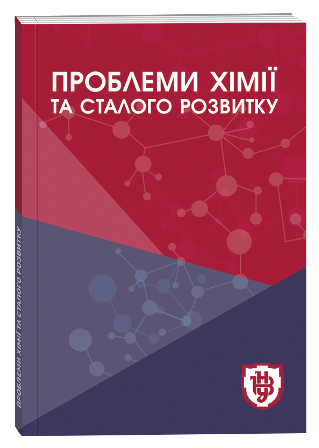THE ROLE OF CULTURAL COMPETENCE IN FORMING THE PROFESSIONAL IDENTITY OF THE FUTURE HEALTHCARE WORKER IN THE PROCESS OF CHEMISTRY TRAINING
DOI:
https://doi.org/10.32782/pcsd-2022-2-12Keywords:
professional identity; competence; cultural competence; chemistry training; student; future healthcare workersAbstract
The article describes the essence of the concept of «cultural competence» and indicates the approaches of scientists to its interpretation. The generalized definition of the term «mid-level healthcare worker cultural competence» is presented. We understand this competence as a component of professional competence, which is defined by the range of necessary and sufficient competencies required for prompt and high-quality solving of life saving tasks (improvement of health, prevention and hygiene) of the patient, ability to adequately assess the clinical situation in which the patient is, taking into account his social and cultural space. Our understanding of the professional identity of the future mid-level healthcare worker is presented, it is understood as the awareness of one's own affiliation with the profession of healthcare worker and the presentation of personal compliance with the criteria, which are determined by the peculiarity of the profession of the medical worker and the comparison of their level of professional competence with the ideal of the healthcare worker. A number of factors have been identified, through which the importance and the role of cultural competence in forming the professional identity of the healthcare worker increases. It is emphasized that the formation of cultural competence of healthcare workers does not require the extension of training periods, or the introduction of additional disciplines and special courses in the curriculum, and it is possible under the condition that cultural issues are included in the content of the chemical disciplines. The ways of development of cultural competence of students through forms and methods of work in the course of chemical training are grounded. Among them, the priorities are: an integrative approach by studying historical and cultural material, systematic use of information and communication technologies, organizing self-depended work of students, organizing an experiment, correcting the readiness of teachers of chemistry to cultural orientation of educational activity. The directions of further researches are determined; they are pointed at analyzing status of the professional identity of medical students of various courses of day and evening forms of education.
References
Галенко А. М. Культурологічна компетентність у структурі професійних компетентностей студентів філологічних спеціальностей. Науковий вісник Донбасу. 2012. № 4. URL: https://www.google.com/url?sa=t&rct=j&q=&esrc=s&source=web&cd=&cad=rja&uact=8&ved=2ahUKEwi99OWh36b7AhVohosKHamdAUYQFnoECA4QAQ&url=http%3A%2F%2Fnvd.luguniv.edu.ua%2Farchiv%2FNN20%2F12gamsfs.pdf&usg=AOvVaw24-_aqCWm0AKvhCqQhfp-V (дата звернення: 11.11.2022)
Дзюба Іван. Проблеми і перспективи української культури. Радіо Свобода : веб-сайт. URL: https://www.radiosvoboda.org/a/1495357.html (дата звернення: 11.11.2022)
Етичний Кодекс медичної сестри України. URL: http://medmedsestrunstvo.blogspot.com/2016/03/blogpost_16.html (дата звернення: 11.11.2022)
Картава Ю. Професійна компетентність учителя української мови та літератури як педагогічна категорія. Наукові записки [Кіровоградського державного педагогічного університету імені Володимира Винниченка]. Сер. : Педагогічні науки. 2014. Вип. 132. С. 285-288.
Князян М. Роль самостійно-дослідницької діяльності у формуванні системи компетентностей майбутніх учителів іноземних мов. Наукові записки КДПУ. Серія : Педагогічні науки. – Кіровоград : КДПУ. 2011. Вип. 97. С. 3–6.
Коваленко О. Ю. Культурологічний підхід при формуванні міжкультурної компетентності у студентів у процесі вивчення іноземних мов студентами-економістами. Науковий вісник Міжнародного гуманітарного університету. Сер. : Філологія. 2015. № 15. Т. 1. URL: http://www.vestnik-philology.mgu.od.ua/archive/v15/part_1/48.pdf (дата звернення: 11.11.2022)
Бібік Н. М. Компетентнісний підхід у сучасній освіті: світовий досвід та українські перспективи: монографія за ред. О. В. Овчарука. – Київ : К. І. С., 2004. 112 с.
Лукащук М. Роль самоосвітньої компетентності у формуванні професійної ідентичності в процесі природничонаукової підготовки медичних сестер. Збірник наукових праць Національної академії Державної прикордонної служби України. Серія : педагогічні науки. Хмельницький : Видавництво НАДПСУ, 2018. № 3(14). С. 346-358
Маслак Л. П. Роль і місце міжкультурної комунікації у процесі формування культурологічної компетентності майбутніх офіцерів. Науковий Вісник Чернівецького університету. 2009. Вип. 1. С. 105–111. URL: http://eprints.zu.edu.ua/3958/ (дата звернення: 11.11.2022)
Про схвалення Стратегії розвитку вищої освіти в Україні на 2022-2032 роки // Відомості Верховної Ради України (ВВР). URL: https://zakon.rada.gov.ua/laws/show/344/2013 (дата звернення: 8.11.2022)
Савченко К. Ю. Формування професійної компетентності майбутніх учителів філологічних спеціальностей засобами моделювання педагогічних ситуацій : дис. … канд. пед. наук: 13.00.04. Кривий Ріг, 2012. 293 с.
Федорцова О. Г. Формування культурологічної компетентності майбутніх інженерів енергетиків у процесі вивчення гуманітарних дисциплін : дис. … канд. пед. наук : 13.00.04. Житомир. 2016. 311 с.
Хомич Л. Зміст культурологічної парадигми розвитку педагогічної освіти. Культурологічна складова професійного розвитку педагога: Зб. наук. праць. Київ-Ніжин: Видавець ПП Лисенко М. М., 2012. 126 с.







